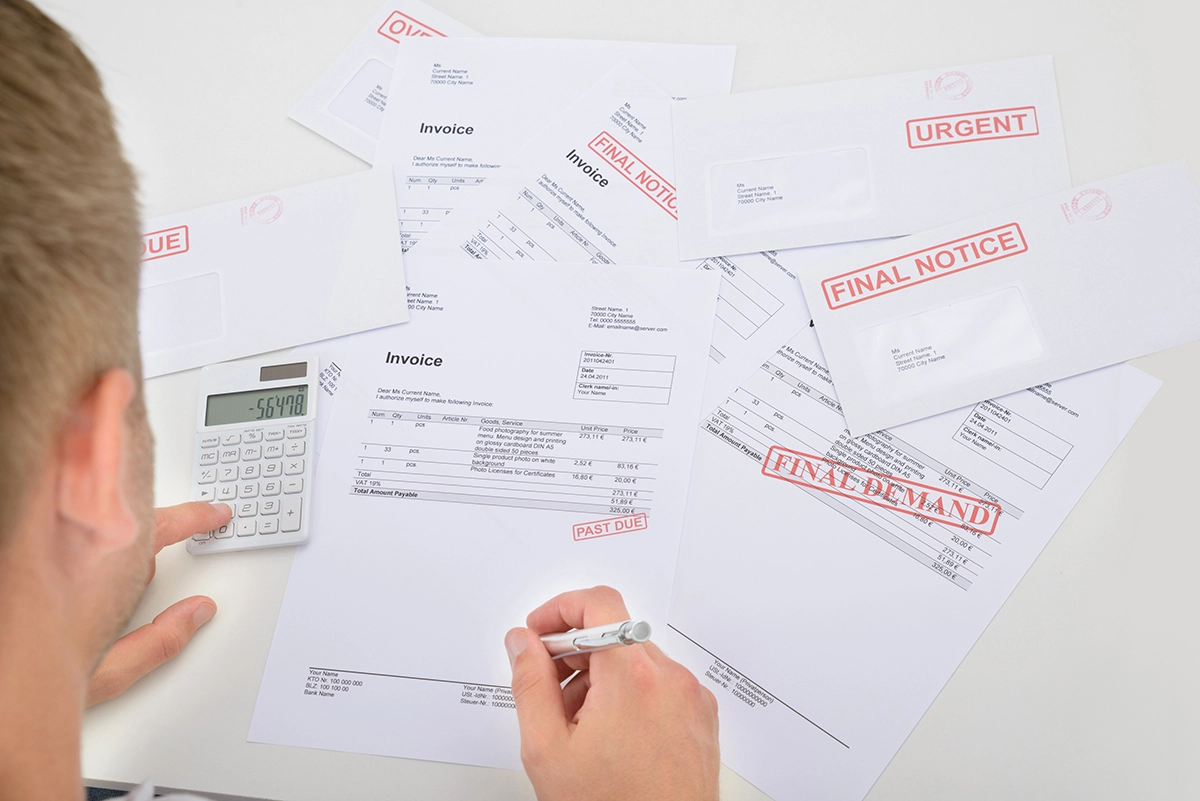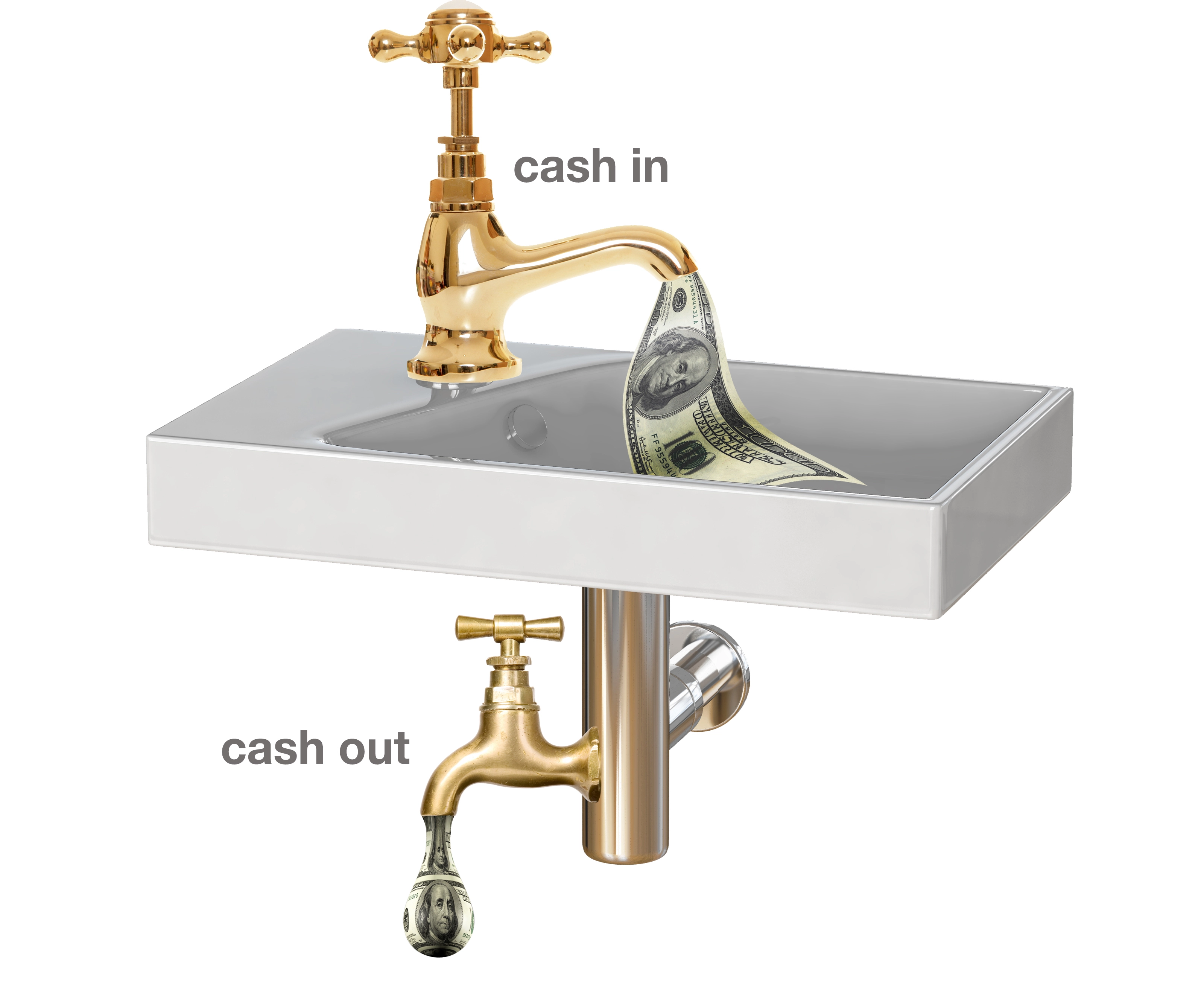Address these issues immediately to avoid bigger problems.
Your financial statements are your scorecards. If they are not accurate, you might make the wrong business decision based on incorrect information. Require that accurate financial statements be on your desk by the 15th of the month following the previous month. Then, take the time to review them and check on their accuracy. Here are seven thing that clearly tell you that your financial statements are wrong. If you find any of them, immediately question your bookkeeper about the numbers.
1. Negative cash. If the cash amount on your balance sheet is negative, you know your statements are wrong. Your banker is not going to allow your checking account to be overdrawn by thousands or even hundreds of dollars. The least you can have in your checking account is zero! Most times your bookkeeper has printed your accounts payable checks and is waiting for the cash to come in before she sends the checks. If this is the case, then your accounts payable is wrong, too.
2. An even inventory value or an inventory value that doesn’t change from month to month. An inventory value of $10,000 is a dead giveaway that someone is guessing at the amount of inventory you have. In addition, if the inventory value doesn’t change from month to month, you know it is wrong. Unless you haven’t done any work for an entire month, the inventory has to change. Since you are continually ordering and using parts, the inventory value has to change because your usage of materials changes every month.
3. A balance sheet that doesn’t balance. A balance sheet is called a balance sheet because your assets must equal (or balance) your liabilities plus net worth. If your balance sheet doesn’t balance, that means that someone has input wrong information into your computer program. Also, a balanced balance sheet is one of the fundamentals of bookkeeping. If your bookkeeper hands you a financial statement with an unbalanced balance sheet, you should find another person because they obviou
4. Negative taxes payable. When you have negative taxes payable, that means either the federal government, state government, or other government entity owes you money. Not likely. Negative payroll taxes payable means that someone has not set up the accounting procedures properly from a bookkeeping perspective. This does not necessarily mean that your payroll taxes are late. However, make sure that your payroll taxes are being paid. Look for the deposit confirmations. If you see negative income taxes payable, this generally means that you have prepaid your income taxes. This should be an entry under prepaid taxes in the current asset segment of your balance sheet. Again, make sure that the taxes were really paid.
5. No rent or extremely high normal monthly expenses. Closely look at the overhead figures. If you see no rent for one month or rent that looks double what it should be, that means that your bookkeeper didn’t account for this expense each month. Your landlord is not going to be happy if you don’t pay your rent. Like your utility bills, phone bills, and most other overhead expenses, it must be paid every month. Question why these expenses are zero or extremely high on your profit- and-loss statement. Most often, two months of that expense are put in a single month (i.e., January and February’s rent are shown in February). This drops your profit in the month with the double expenses and can increase your profit significantly in the months that don’t show the usual monthly expenses.
6. Negative loan balances. Negative loan balances mean that the bank owes you money for loans you have obtained. The last loan payment for a loan might show a negative balance of a few pennies. Other than this, the bank does not owe you money for the loans. You owe money to the bank, and your loan balances should be positive.
7. Inconsistent gross margins. If you are pricing consistently, your gross margins should be consistent. With the exception of very busy times, if your gross margins vary more than 2% per month from the previous month, something is wrong. During very busy times, you can be paying overtime to your field employees but not charging the customer overtime. This will drop your gross margins slightly. Next month, I will explain what to do when you find these seven dead giveaways that your financial statements are wrong.
Ruth King has over 25 years of experience in the hvacr industry and has worked with contractors, distributors, and manufacturers to help grow their companies and become more profitable. She is president of HVAC Channel TV and holds a Class II (unrestricted) contractors license in Georgia. Ruth has written two books: The Ugly Truth About Small Business and The Ugly Truth About Managing People. Contact Ruth at ruthking@hvacchannel.tv or 770.729.0258.





